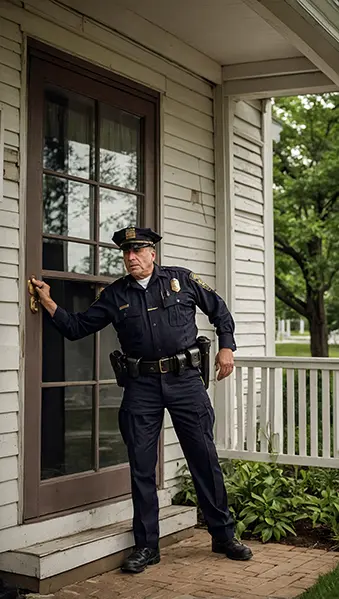Deed Fraud: How to Protect Your Home from Property Scams
Deed Fraud: How to Protect Your Home from Property Scams

Deed fraud is an alarming crime that can leave homeowners devastated, often without realizing anything is wrong until it’s too late. Imagine waking up one day to discover that your home no longer belongs to you—or worse, that it’s been sold without your knowledge. This scenario, known as deed fraud, is more common than you might think, and every homeowner should be aware of the warning signs, prevention tips, and what to do if it happens.
What Is Deed Fraud?
Deed fraud, also known as title fraud, occurs when someone forges your name on property transfer documents and then files them with the county clerk’s office. This makes it appear as if your property has been legally transferred to someone else. In some cases, the fraudster might even take out a mortgage on your home and walk away with the money, leaving you with a huge financial mess.
Victims often discover the fraud when they receive unexpected foreclosure notices or bills for a mortgage they didn’t take out.
How Does Deed Fraud Happen?
Deed fraud typically occurs in one of the following ways:
- 1. Forged Documents: Scammers forge your signature on a deed or mortgage, transferring ownership to themselves or an accomplice.
- 2.Fake Buyers: The fraudster may pose as a legitimate buyer and use fake IDs or stolen information to complete the sale.
- 3.Identity Theft: If someone gets access to your personal information, such as your social security number or bank records, they can impersonate you and sign legal documents without your knowledge.
Homes that are vacant, rented out, or owned by elderly individuals are prime targets for deed fraud, as these owners are less likely to notice unusual activity right away.
Signs of Deed Fraud
While it can be difficult to detect deed fraud until significant damage is done, some red flags can help you catch it early:
- Missing Bills: If you stop receiving bills or correspondence for your home, it may be a sign that someone has changed the mailing address on the title or deed.
- Unfamiliar Transactions: Keep an eye on your credit report and financial statements for any suspicious transactions related to your property.
- Unexpected Notices: Receiving foreclosure or eviction notices on a property you own, but didn’t sell, is a huge red flag.

How to Protect Yourself
Preventing deed fraud starts with being vigilant. Here are some proactive steps to protect yourself:
- 1. Monitor Your Title: Check your property records regularly with your local county recorder’s office to make sure no changes have been made to your deed.
- 2. Sign Up for Fraud Alerts: Some counties offer free deed fraud alert services that notify you if a document is filed against your property.
- 3. Be Cautious with Personal Information: Never share sensitive information like your social security number or banking details unless absolutely necessary, and only with trusted entities.
- 4. Keep Your Address Current: Always ensure your mailing address is up-to-date with your mortgage company, insurance provider, and the county office so you’re alerted if anything changes.
What to Do if You’re a Victim of Deed Fraud
If you discover that you’re a victim of deed fraud, take immediate action:
- 1. Contact Law Enforcement: File a report with your local police department or district attorney’s office. Deed fraud is a serious crime, and law enforcement will need to be involved.
- 2. Notify the County Recorder’s Office: Alert the county office where your property is registered to stop further fraudulent actions.
- 3. Consult a Real Estate Attorney: You’ll need legal guidance to help resolve the situation and potentially restore your rightful ownership of the property.
- 4. Notify Your Lender: If a fraudulent mortgage has been taken out in your name, inform your mortgage company as soon as possible.
The Bottom Line
Deed fraud is a serious and costly crime, but with the right precautions, you can protect your home and financial security. Regularly monitoring your property records, safeguarding your personal information, and staying alert to suspicious activity are your best defenses. If you ever find yourself a victim of deed fraud, act quickly and seek legal assistance to help reclaim what’s rightfully yours.
